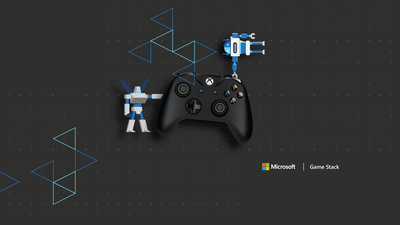This post has been republished via RSS; it originally appeared at: New blog articles in Microsoft Tech Community.
Just a year after the original release of MS-DOS in 1981, Microsoft launched Microsoft Flight Simulator 1.0 to show off the power of 16-bit PC gaming. Ever since, the connection between Microsoft and gaming has run deep, not only on PCs and Xbox, but also in casual gaming through Minecraft and peripherals such as Kinect and HoloLens.
Microsoft also provides the tools used by the creators who make the games we love. Visual Studio is the most powerful IDE used with Unity C# development and Unreal Engine C++ development.
As online gaming is becoming increasingly common, Azure provides a range of services to take on the field of online infrastructure, leaving creators free to just be creative. Azure Gaming support includes basics such as game server hosting and DevOps. At the next level, it provides support so you can anticipate player behavior, analyze hundreds of thousands of images per second, or provide personalized gaming experiences for your players. Azure even helps you scale your online game over time as you level up and need more compute and storage.
When your game is in the wild, Azure Playfab will become a vital resource. PlayFab is a complete back-end service for building and operating live games. Out of the box it includes:
- Matchmaking: Powerful matchmaking for multiplayer games, adapted from Xbox Live matchmaking.
- Party: Voice and chat services, adapted from Xbox Party Chat, but now available to all games and for all devices. Party leverages Azure Cognitive Services for real-time translation and transcription to make games accessible to more players.
- Real-Time Analytics: Use robust real-time game telemetry to measure your game’s performance and create actionable insights. Import, view, store, process and export data generated by your games, in real-time.
- Commerce: Securely manage your in-game purchases and DLC to help monetize your creative achievements.
- LiveOps: Store your game configuration on the server. Reward your players and enable a rich set of actions including running CloudScript or sending push notifications. Schedule and run tasks, such as granting a reward to your top spenders or re-engaging your lapsed players with an offer.
So are live games currently using Playfab? The short answer is yes. Ubisoft is using it for Rainbow Six Siege, and Rare is using it to power Sea of Thieves. In fact, over 5000 games with over 2.5 billion accounts are currently taking advantage of Playfab, including:
- Minecraft
- Minecraft Earth
- Gears of War 5
- Microsoft Flight Simulator
- Forza Horizon 4
- Angry Birds Seasons
- Crackdown 3
- Rollercoaster Tycoon Touch
- Delicious World
- Project Winter
If your impression of Azure was that it is only for enterprise applications, we hope we’ve helped open your eyes to a whole new world of gaming possibilities. Gaming infrastructure can be every bit as complex as enterprise architecture and sometimes even more so. Azure has been able to use its world-class support for the enterprise and turn it toward enriching our leisure time. It has been able to do this because Microsoft has always been a game developer, with 15 game studios and hits like Minecraft, Minecraft Earth, and, of course, Microsoft Flight Simulator 2020, being released 38 years after the original and promising to be the greatest flying simulator of all time.
As a bonus:
Do you want to learn more about Microsoft Game Stack?
Even though GDC was postponed, your game development goes on. Learn about the latest in game development technologies as we livestream all the experiences we had planned to share at GDC. Join us on March 17th and 18th for Game Stack Live!
For more info, check out the Game Stack Live webpage and Microsoft Game Stack’s Twitter.

